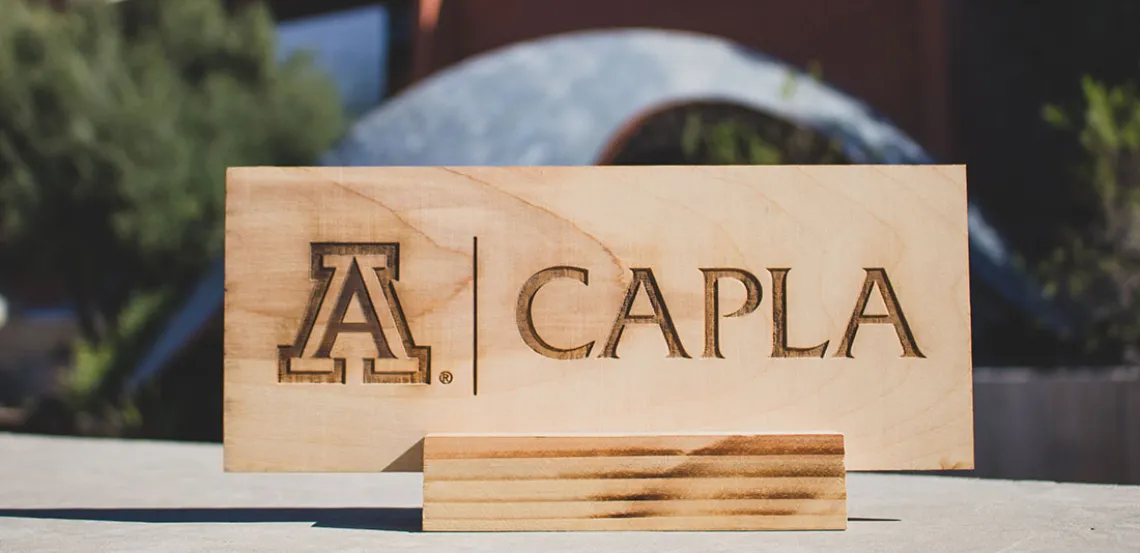CAPLA announces 2025 Grassroots Seed Grant Awardees

The College of Architecture, Planning and Landscape Architecture is proud to announce the recipients of the 2025 Grassroots Seed Grants, which support innovative teaching, research, scholarship, and creative activity.
“The Grassroots Seed Grants are vital to fostering the early-stage ideas that can grow into transformative research, teaching innovations, and creative work,” said Bo Yang, associate dean of research for CAPLA.
The Grassroots grants are part of the Dean’s strategic investment to advance CAPLA’s Strategic Plan, Building a Better World. This year’s awardees represent a range of interdisciplinary projects that address pressing social, environmental, and economic challenges.
“They empower our faculty to explore bold approaches, build collaborations, and make meaningful contributions to the communities we serve,” said Nancy Pollock-Ellwand, dean of CAPLA.
Grassroots Teaching Innovation Seed Grant
Project: The Worth of Place: Building an Interdisciplinary Framework for Landscape Design and Valuation
Team: Kirk Dimond, April Athnos
For true sustainability, design must balance environmental, social, and economic dimensions—a framework known as the triple bottom line. While landscape architecture education already engages deeply with environmental and social systems, it often lacks an equally strong economic foundation. This project addresses that gap by integrating environmental economics into the Bachelor of Landscape Architecture curriculum, giving students the tools to evaluate and communicate the value of ecosystem services such as clean air, water filtration, climate regulation, and recreation.
The project will introduce an environmental economics module into Design Studio III (LAR 301), apply real-world landscape architecture case studies in Economics of the Natural Environment (AREC 478), and create an open repository of economic benefits data for CAPLA students. Outcomes will be shared through conferences and peer-reviewed publications, positioning CAPLA’s program as a leader in applying economic principles to sustainable design education.
Grassroots Research Innovation Seed Grant
Project: Housing Medicaid-Enrolled Adults with Serious Mental Illness
Team: Atticus A. Jaramillo, Maia Ingram, Arlie Adkins
This project advances the evaluation of the Housing and Health Opportunities (H2O) demonstration, a unique Medicaid-funded policy experiment administered by Arizona’s Health Care Cost Containment System (AHCCCS). Implemented in October 2024, H2O funds specialized homelessness prevention and support services for low-income adults with serious mental illness, aiming to improve health and wellbeing, reduce costs of care, and increase housing stability.
Dr. Jaramillo and the research team are examining the program’s implementation, with a focus on workforce challenges that must be addressed to scale and sustain H2O. With support from this grant, the team will complete in-depth data analysis, produce peer-reviewed publications, and pursue follow-up funding opportunities. Their findings will help inform whether H2O should be continued or expanded, contributing to broader conversations about housing, health equity, and sustainable social policy.
Grassroots Scholarship and Creative Activity Seed Grant
Project: More-Than-Human Design Methods in Sonoran Ecologies
Team: Sheehan Wachter, Chris Tucker, Jesus Robles
In response to the climate and biodiversity crisis, this project explores how design can embody “more-than-human” ethics—approaches that honor the interconnected relationships between humans, other living beings, and ecological systems. Partnering with The Land With No Name Sanctuary, a nonprofit arts and cultural organization located on the ancestral lands of the Tohono O’odham people, the project will conduct site research and pre-design activities for new arts programming structures.
Drawing on both indigenous knowledge and ecological science, the team seeks to reframe ideas of “site” and “nature” while integrating these concepts into CAPLA courses such as advanced studios, material economies electives, and visualization and fabrication classes. The work will not only support the Sanctuary’s mission but also develop design methods that strengthen multispecies relationships and ecological stewardship in the built environment.
These projects exemplify CAPLA’s commitment to innovation, collaboration, and addressing complex challenges in the built and natural environments—creating new knowledge and practices with real-world impact.



